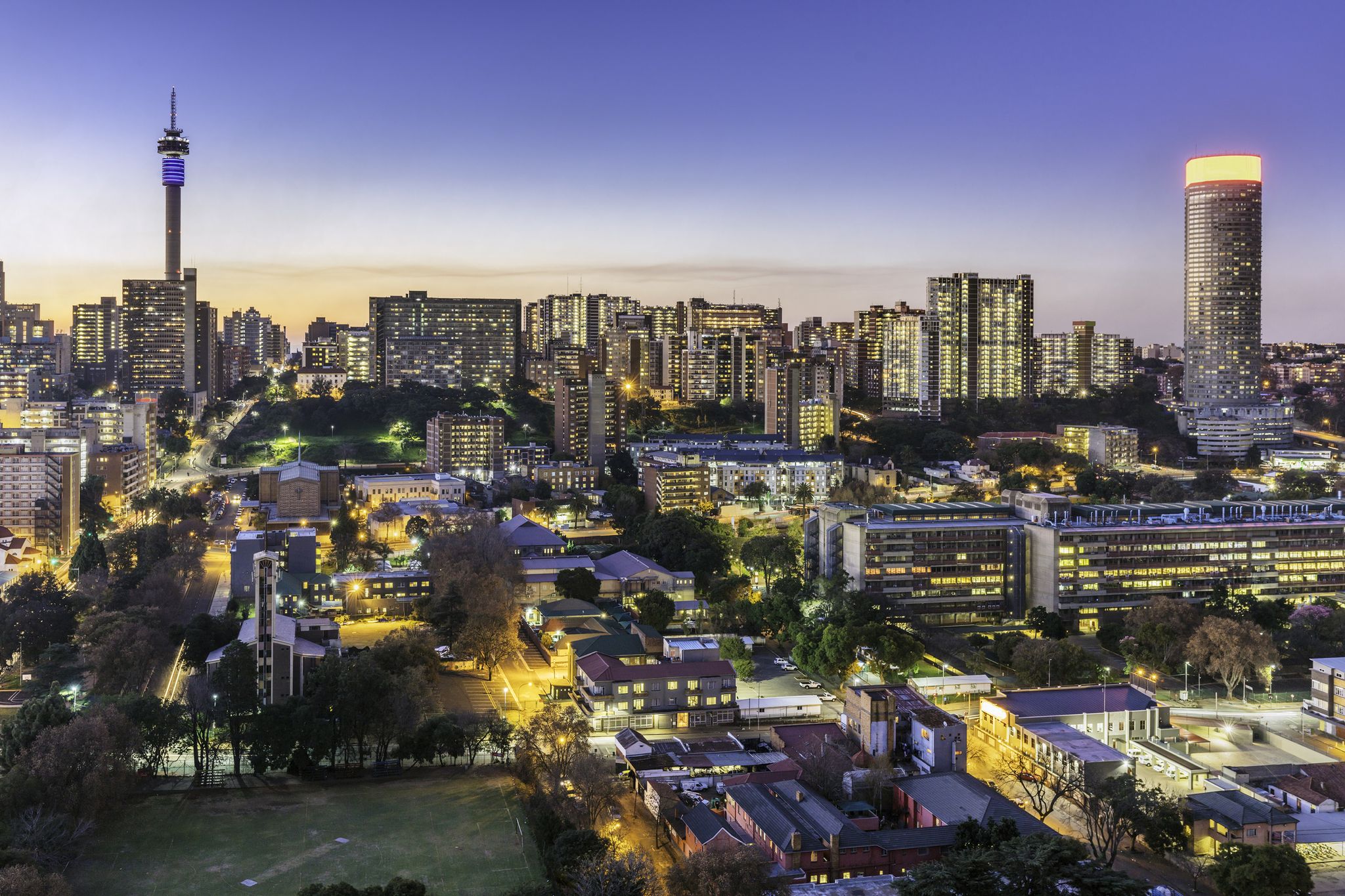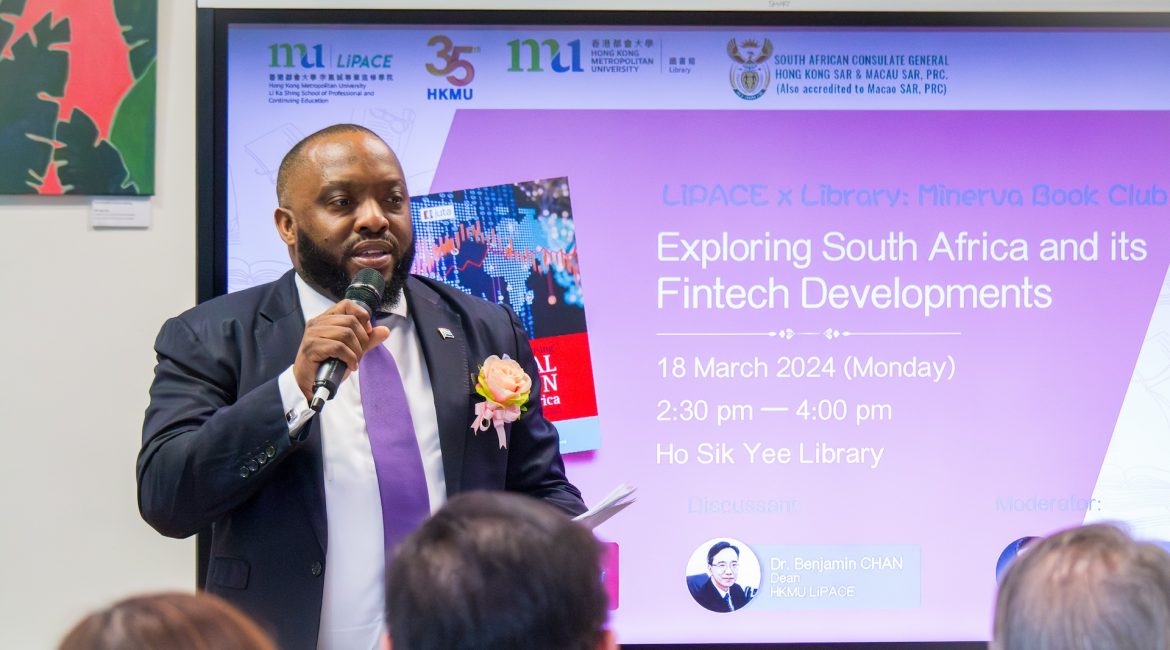The South African consul-general in Hong Kong, Mojalefa Mogono, cuts a friendly and business-minded figure. He has been in his diplomatic post for two years, and his office is decorated with rugby jerseys and footballs: a beloved sporting and cultural trademark of not only South Africa but also Hong Kong. His consular corps has several foci, one of them being securing bilateral deals and collaborations. There is talk of an forthcoming joint stock initiative between the Asian financial hub and the JSE (Johannesburg Stock Exchange). While primarily focused on trade, Mr. Mogono is clear about how such encounters happen in the first place. Every person on the planet is born into a particular culture, and it is only by understanding and empathizing with that culture that genuine connections can be nurtured.
“If you’re trying to connect with a company or an organization, you obviously have to meet the people within them. Before you can sign anything, you have to get to know each other, to break bread with them,” he tells me. “People need to understand each other, and everyone comes from some kind of culture. So people must meet and talk. If culture didn’t matter, people would be signing documents on the first day they met. Culture first, business later.”
Hong Kong and South Africa already share a common business heritage and legal culture. Mr. Mogono relates how he has seen entire groups of businessmen from Cape Town or Johannesburg flying to Mainland China, with cities like Shenzhen being what he calls inspirations for the South African leadership. He makes the amused observation that Hong Kong’s skyline and streets inevitably look older than the newer, glimmering towers and hubs of the mainland. This is actually to Hong Kong’s advantage, he says with a smile, for it simply means that Hong Kong has much to teach and impart. The free port, through the foresight of One Country Two Systems, retains distinct advantages while being integrated into the mega-economy of China. These advantages provide ripe ground for “internationalization.”

“Internationalization” is a (very) unwieldy word, but it refers to a South African and Hong Kong initiative, driven by institutions like the Hong Kong Metropolitan University. Mr. Mogono was at the Metropolitan University in April giving a speech on exactly this. “Internationalization is a learning principle that hinges on several priorities: one, enjoying a diverse learning environment, which is particularly important in Hong Kong; two, gaining a global perspective; three, absorbing language skills like English; and four, leveraging opportunities.” This is particularly useful for Hong Kong-born students that might not have the chance to travel to nations like South Africa, but it is also very helpful for South African exchange students, professionals, and businesspeople hoping to integrate into a broader ecosystem of culture and trade or financing.
For the consul-general, part of the process of internationalization means educating Hongkongers about the vast potential of South Africa’s economy and its interconnectedness with global prosperity. Mining is one of the nation’s core industries, with chrome a particularly important mineral. Solar panel manufacturing and the broader sustainable energy industry is also one of the solutions for the future, which calls for financial expertise Hong Kong is well-placed to provide.
A broader word for internationalization, with deeper philosophical implications, is none other than the pan-continental expression of “ubuntu.” In Zulu, the term is “umuntu ngumuntu ngabantu” (in the Sesotho and Tshivenda languages, it is botho and vhuthu respectively). It is not hard to find striking similarities between the Buddhist notion of radical interconnectedness and the African maxim, “I am because you, and we, are.” We depend on not only mutual recognition and empathy for each other’s cultures, but in a higher sense, a transcendence of all cultures to see the inherent dignity in one another.

As the Buddhist philosopher Shantideva noted in the Bodhicaryavatara, the exchange of self and other is one of the most profound meditative exercises that generates not only insight into emptiness, but gives rise to enlightened compassion (bodhicitta). Deep empathy practice is already unfolding in South Africa, in which the Buddhist charitable organization, Amitofo Care Centre (ACC), operates. ACC was founded in 2004 by Ven. Hui Li, a Taiwanese-born monk. South Africa is among several countries where ACC opened orphanages for children, many of who forge lifelong relationships with ACC long after they graduate school and university and build their careers. Some may choose to become practicing Buddhists, while others retain their Christianity or other spiritual traditions. What is important is that these young people, some of whom are now husbands and fathers and wives and mothers, have the world opened to them, so they realize their potential.
As it celebrates its 20th anniversary, with orphanages and schools in Madagascar, Malawi, Lesotho, Eswatini, Namibia, and Mozambique, ACC is one non-profit organization that is trailblazing a path of Sino-African mutual understanding. Based in Longdale, Johannesburg, ACC South Africa worked with its affiliate centers to serve 32.79 million meals to 186,643 families, donate 3,167 wheelchairs, and distribute 44,502 facemasks globally throughout the period of 2019–22.
Ubuntu, interconnectedness, and internationalization seem to all reflect aspects of the one insight into oneness, that fundamental unity underlying all things. Far from being merely philosophical rumination, this primordial truth has important applications for the future wellbeing of the planet. Despite political trends toward Sino-American decoupling, the world economy remains deeply integrated. The interfacing between Hong Kong and Johannesburg or Cape Town can potentially shape the future of Sino-South African understanding and the prosperity of both South Africa and China. In a world pervaded by division and ignorance, enlightened attitudes have become ever more necessary.
See more
Related features from BDG
Buddhistdoor View: Africa – Continental Legacies, Religious Inheritances
Love, Hope, and Community: BUDDHISM IN MALAWI


